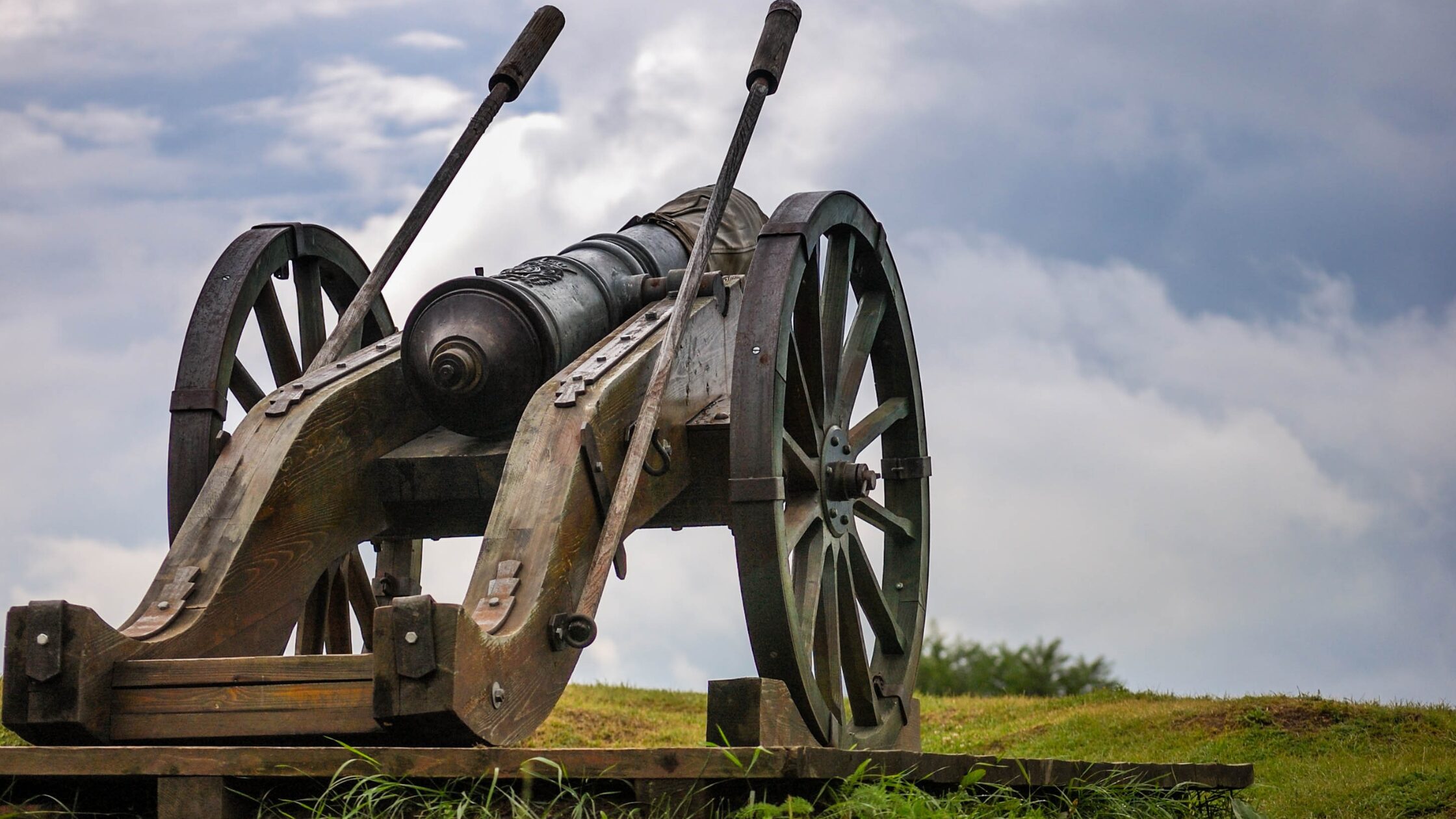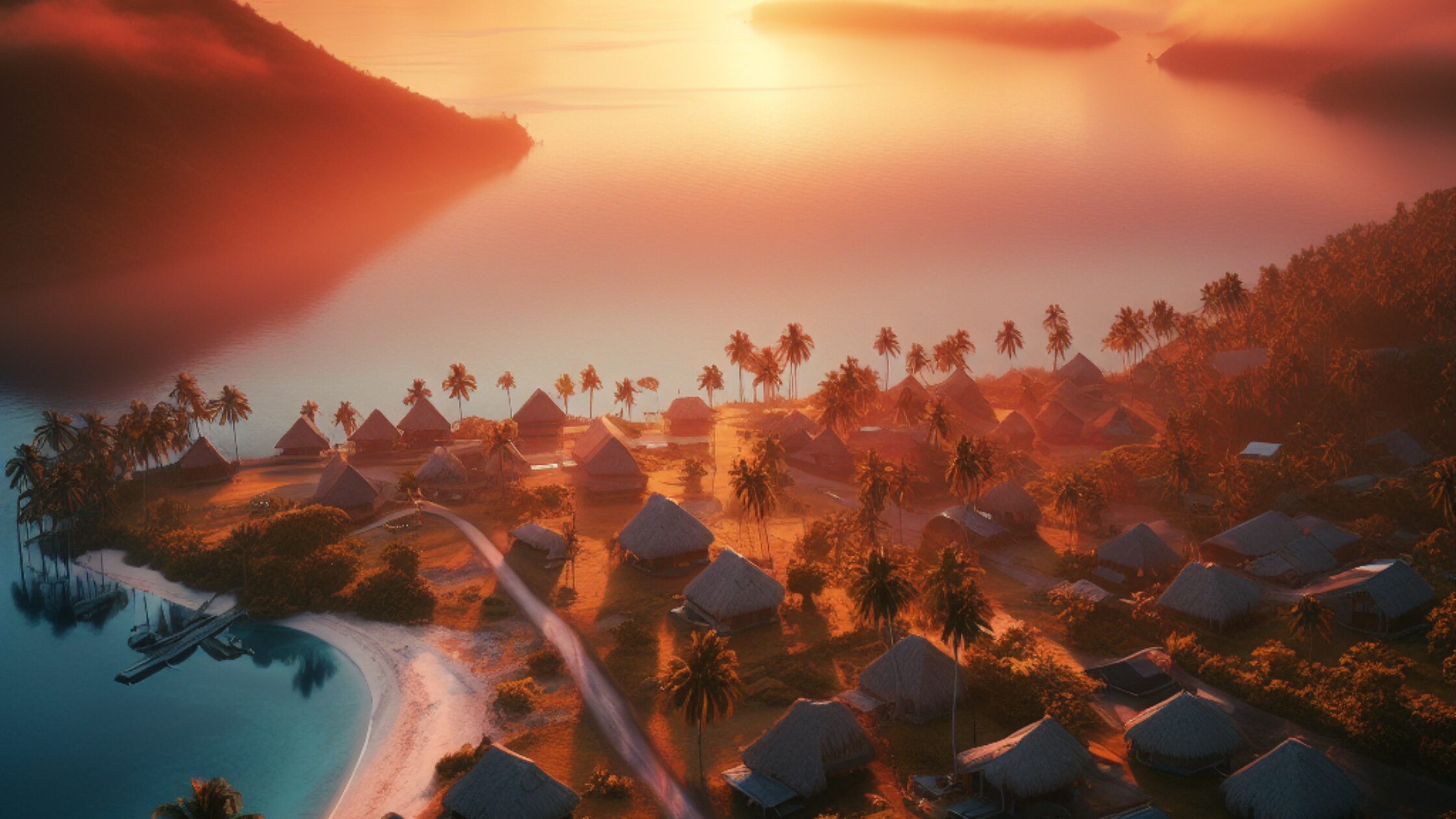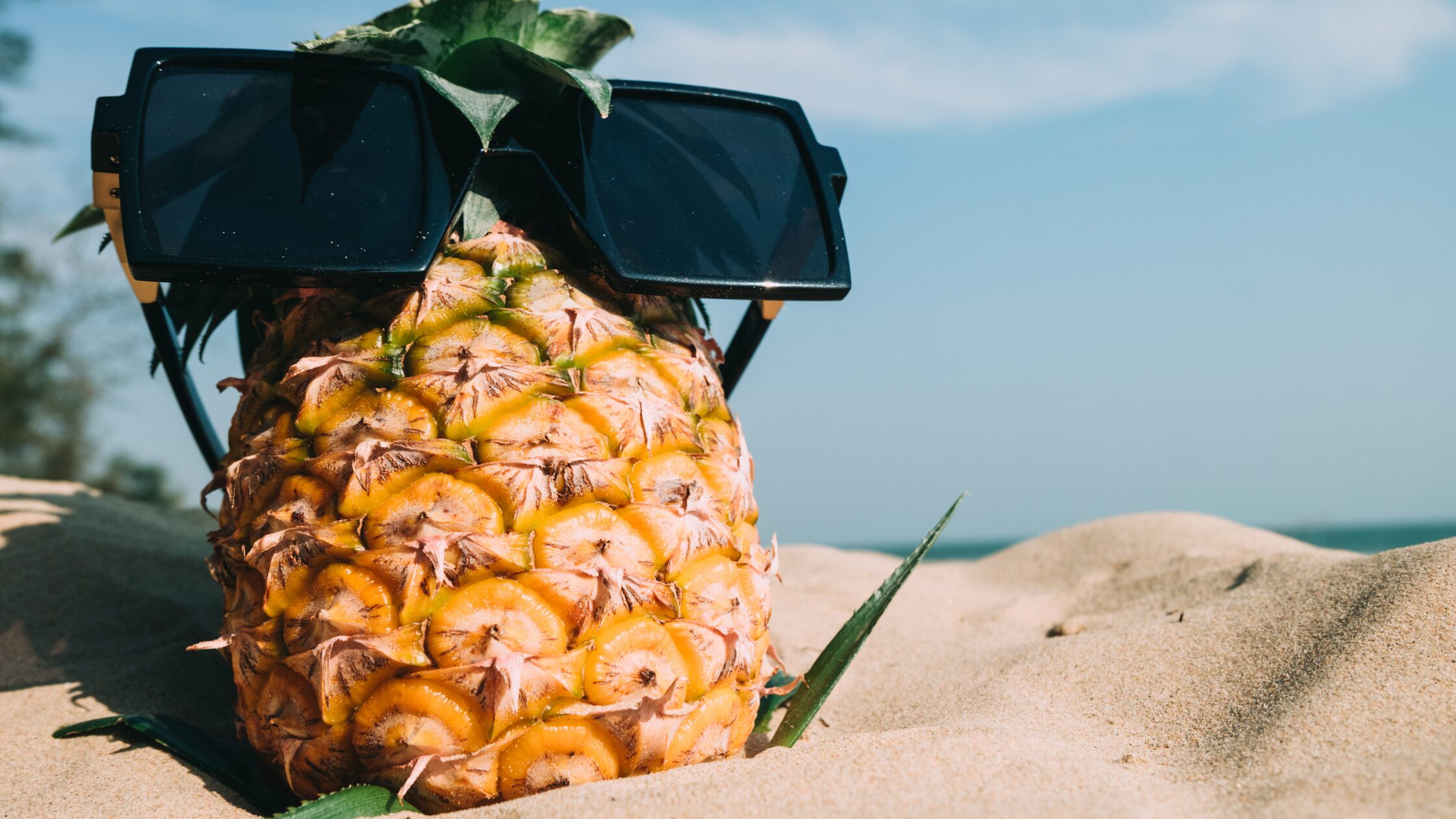Before Suva, Levuka was the capital of Fiji and it still carries an air of old-world importance about it. It was the very first “modern” town in Fiji so this is where you’ll find the furthest remnants of the colonial past, including the oldest Masonic Lodge in the South Pacific. Come for the history, stay for the dreamy walks through evocative streets with the sound of waves lapping on the pristine beach. Speaking of beaches and streets, Beach Street is a must-photograph sight and the old Royal Hotel is well-worth an inspection. This is everything you need to know about old Levuka before you go:
Understanding Levuka: Fiji’s Heritage Gem
As you explore the enchanting islands of Fiji, Levuka stands out as a historical jewel. Nestled on the island of Ovalau, Levuka was Fiji’s first capital from 1874 to 1882. During its time under British rule, this town was the hub of colonial administration.
Levuka is recognised by UNESCO as a World Heritage site, a testament to its colonial architecture and historical significance. The remnants of its past as a British colony are evident in the well-preserved buildings that line the streets—a collage of colonial style mingled with traditional Fijian influences.
The town played a crucial role in Fiji’s path to independence. It was here in Levuka that the Deed of Cession was signed in 1874, ceding Fiji to British rule. This pivotal moment in history is commemorated at the nearby village of Nasova.
Here’s a snapshot of what you’ll discover in Levuka:
- Historical Landmarks: Walk through the town centre and marvel at 19th-century establishments, including the former government buildings and the iconic Morris Hedstrom Building.
- Cultural Significance: Learn about Fiji’s journey to independence and see the site where Fiji became a modern nation-state.
- Architectural Charm: Observe the unique blend of Fijian vernacular and European colonial architecture that tells a story of cultural exchange.
To truly understand Fiji’s historical heart, a visit to Levuka is essential. It’s a chapter of Fiji’s story that’s frozen in time, inviting you to step back into the past and walk the streets where the foundational steps of the country’s identity were formed.
Exploring the Cultural and Historical Significance
Levuka, with its unique blend of Fijian culture and colonial heritage, invites you to discover its storied past. From its status as a UNESCO World Heritage site to the historical landmarks peppering the town, you’re invited to step back in time and appreciate the confluence of influences that shape this Pacific gem.
Colonial Architecture and Historical Sites
As you meander through the streets of Levuka, the historical town‘s rich colonial past comes to life. You will notice the colonial architecture that defines much of Levuka’s character; buildings such as the Levuka Town Hall stand as proud remnants of a bygone era. A visit to sites like Bishop’s Tomb offers a glimpse into the island’s distinct past and its colonial influences, showcasing Levuka’s importance as a historical and cultural hub.
Sacred Heart Church and Religious Influence
The Sacred Heart Church stands as a testament to the strong religious influence within Levuka. Built by missionaries, this church is not only a place of worship but also a symbol of the blend between Fijian traditions and European religious practices. The towering presence of this structure reminds you of the significant role that both Catholic and Methodist denominations have played in Fijian history.
Levuka Public School: Educational Pioneer
Levuka Public School embodies the historical commitment to education on the island. As one of the first modern educational institutions in Fiji, this school marks Levuka’s status as an innovator in the South Pacific. With its establishment, Levuka set the precedent for public education, fostering both local and colonial knowledge.
The Royal Hotel: A Portal to the Past
At The Royal Hotel, the oldest operating hotel in Fiji, history envelops you in a comforting embrace. A stay here isn’t just a night’s lodging—it’s an immersive experience into Levuka’s past. Each room is a chapter of history, with the hotel itself a living museum, inviting you to fully appreciate the heritage that Levuka cradles.
Daily Life and Community in Levuka
Daily life in Levuka exhibits a blend of Fijian tradition and the conveniences of modern facilities. From the bustling Beach Street to important services such as healthcare and postal services, the town reflects both its rich history and contemporary rhythm.
The Pulse of Beach Street: Markets and Traders
As you stroll down Beach Street, you’ll feel the heartbeat of Levuka. Markets brim with fresh produce and handicrafts offered by local traders, painting a vibrant picture of commerce and culture. The daily catch served straight from the ocean to the stall gives you a freshly-picked choice for your next meal. Alongside the markets, bank services ensure the financial pulse of Levuka keeps beating steadily, supporting businesses and locals alike.
- Local Markets: Fresh produce, fish, and handicrafts.
- Bank: Financial transactions and support to the community.
- Traders: A variety of goods and services available.
Beach Street isn’t just an economic hub; it’s also a social nexus where the community’s stories and smiles are shared freely, creating a welcoming atmosphere for both locals and visitors.
Institutional Presence: Hospitals and Post Office
When it comes to community services, Levuka is both historical and functional. The hospital stands ready to serve, providing healthcare to the town’s inhabitants. The care at the hospital is a testament to the town’s commitment to its residents’ well-being.
- Hospital: Essential healthcare services.
Further along, the post office remains an integral part of the community, not only facilitating communication but also serving as a landmark of administrative order.
- Post Office: Postal services and community notices.
Both these institutions, much like the community centre and the town council offices in Nasova, ensure that the day-to-day life in Levuka runs smoothly, maintaining the island’s connection to both its past and its future.
Tourism and Activities in Levuka
Levuka offers a rich blend of history and outdoor excitement, inviting you to explore its past through guided walks and to experience its natural beauty with exhilarating outdoor pursuits. You’re sure to connect with the local culture through its museums and monuments.
Historical Walking Tours and Local Guides
Embarking on a historical walking tour of Levuka is like stepping back in time. With a local guide at your side, you will uncover the tales of Fiji’s first capital. The Sacred Heart Church, an architectural gem doubling as a lighthouse built in the late 1850s, is not to be missed. Discover Levuka’s historic heart and why it’s a UNESCO World Heritage Site.
Outdoor Adventures: Hikes and Waterfalls
Levuka’s rugged landscape invites you to indulge in outdoor adventures. For those who enjoy a challenge, hikes up the steep bluffs offer panoramic views and the opportunity to encounter stunning waterfalls. These hikes are an exhilarating way to witness the island’s natural splendour and will leave you with memories to last a lifetime.
Cultural Experiences: Museums and Monuments
Your journey through Levuka isn’t complete without delving into its cultural offerings. The town’s monuments and the Fiji Museum provide a fascinating insight into the nation’s history. As you stroll down Beach Street, imagine the bygone era of a pigeon postal service—an intriguing chapter in Levuka’s timeline highlighted in historical insights. You’ll come to appreciate Levuka’s role in shaping the cultural heritage of Fiji.
The Echoes of Levuka’s Past: From Capital to Community
When you wander through the streets of Levuka, you’re tracing the same paths where history was made. Levuka, embraced by the verdant hills of Ovalau Island, was once the beating heart of Fiji—the first capital of this Pacific nation. Before Suva took over the mantle in 1882, Levuka was the crux of Fiji’s transformation from a British colony to a modern member of the Commonwealth.
In your exploration of Levuka, you’ll come upon the solemn Deed of Cession Monument, marking the pivotal moment in 1874 when Fiji ceded to British rule. The significance of this event is enormous, representing a shift from traditional Fijian governance to the influence of British laws and economic practices.
The rich echoes from Levuka’s days as a capital are evident in its historical architecture. Buildings that stood witness to the debates and decisions of colonists remain, now repurposed for modern uses but retaining their colonial charm. It’s in these repurposed structures that you’ll sense the transition from an island overseen by a foreign power to a community with a shared identify, leading to Fiji’s eventual independence in 1970.
- Historical Sites to Visit:
- Deed of Cession Monument
- Colonial-period buildings
- Levuka Public School
- First private clubs from the colonial era
As you absorb the surroundings, remember you’re not just looking at old structures; you’re standing in the remnants of a site that was the fulcrum of Fijian history, where the past reverberates through the air and celebrates the spirit of the friendly local community that Levuka is known for today.
Modern Levuka: The Transformation and Challenges
Levuka has experienced a dynamic shift from its historical origins to its present-day status, embodying both progress in commerce and demographic evolution, amidst the continual development of its infrastructure.
Economic Activities: From Saloons to Shops
The economic landscape of Levuka has drastically evolved. Where saloons once stood as social hubs during the 19th century, modernity has paved the way for retail shops and small-scale industries. The transition from a bustling port town known for its rowdy establishments to a quieter commerce centre can be observed in the variety of shops that now line the streets. They serve both the locals and the tourists, giving a glimpse into contemporary Fijian life. Despite the challenges brought about by global events like COVID-19, which significantly impacted businesses worldwide, Levuka’s merchants have shown resilience, adapting to new realities and customer needs.
Demographic and Social Developments
The population of Levuka has undergone changes over the years. While preserving their rich cultural heritage, the town’s demographic profile reflects a connected community albeit less dense than larger cities such as nearby Viti Levu, Fiji’s main island. The people here navigate the complexities of maintaining traditional Fijian values while embracing the benefits and challenges of modernisation. Additionally, the effects of COVID-19 have influenced social behaviours and health practices, marking an era of increased awareness and adaptation within the community.
Infrastructure and Transport Links
Your journey to the modern Levuka reveals improvements in infrastructure and transport links that contrast with the town’s earlier days. Accessibility has progressively developed; for instance, Venu Shipping offers services that connect Levuka with Fiji’s larger islands, including the busy Natovi Landing on Viti Levu. These advancements in transport have been essential for both the mobility of people and the flow of goods to and from the island, ensuring Levuka’s participation in Fiji’s broader economic activities. However, maintaining and upgrading these links remains a challenge that demands ongoing attention and investment.
Natural Beauty and Geography of Levuka
Levuka is nestled on the island of Ovalau in the heart of the South Pacific. Its distinctive natural beauty is shaped by the sharp rise of mountains from the sea, offering both rugged terrains for adventure-seekers and a serene port town rich in history.
The Rugged Terrain: Mountains and Mountaineering
When you visit Levuka, you’re immediately greeted by the emerald embrace of its mountains. These towering formations are not only a backbone to the geography but also present opportunities for rigorous mountaineering adventures. The mountains of Ovalau are cloaked in verdant rainforests, which are home to unique flora and fauna, making them a paradise for eco-tourists and nature enthusiasts. Their volcanic origin contributes to the fertile soils and lush vegetation, encouraging you to explore the natural paths and trails that wind into the highland’s heart.
The Port Town and its Oceanic Backdrop
The historic port town of Levuka sits gracefully against its Oceanic backdrop, a picturesque scene framing the Pacific’s crystal-clear waters. You’ll find the town to be your gateway to the island’s charming beaches, where you can relax on the sands or swim in the warm, inviting waters. Levuka’s beachfront provides a tranquil setting, juxtaposing the bustling history of Fiji’s first colonial capital. Despite its transformation through the years, the town maintains its connection to the ocean, a constant throughout its history as a critical location for trade and settlement in the South Pacific.
Levuka’s Global Relations and Recognition
Your understanding of Levuka’s standing on the international stage can be deepened by examining its historical connection with Britain and its acknowledgment by UNESCO as a World Heritage Site.
Relationship with Britain
Levuka’s establishment as Fiji’s first capital in 1874 was the result of nearly two centuries of evolving connections with European powers, chiefly Britain. As an early European settlement and thriving port town in the 19th century, Levuka played a pivotal role in Fiji’s colonial history. It was here that Fiji was ceded to the United Kingdom in 1874, marking the beginning of British colonial rule in Fiji. Your appreciation of Levuka’s historical significance is enriched when you consider the political and social transformations that occurred during this era. Under British administration, Levuka flourished, with the development of institutions and infrastructure that laid foundations for modern Fiji.
Recognition as World Heritage
In 2013, UNESCO designated Levuka as a World Heritage Site, recognising its outstanding universal value and well-preserved colonial buildings. This inscription acknowledges Levuka’s unique testimony to the cultural and historical currents that shaped Fiji. UNESCO’s recognition not only honours Levuka but entrenches its legacy and ensures the protection of its cultural landscape for future generations. When you visit Levuka, you step into a living museum, reflecting the interplay of traditional Fijian culture with European colonial influences.
Sports and Recreation in Levuka
Levuka offers a vibrant sporting culture with a particular emphasis on rugby, reflecting the nation’s passion for the sport.
Rugby and Local Sporting Culture
When you set foot in Levuka, you’ll immediately notice the deep-rooted love for rugby that is engrained in the local populace. The town’s pride, the Ovalau Rugby Club, is a testament to Fiji’s celebrated rugby heritage. It’s not uncommon to see impromptu games occurring on any available patch of grass, and you might even get an invitation to join in.
Noa Vueti, a name synonymous with Fijian rugby excellence, is revered in Levuka. As a homegrown talent, his contributions have elevated the local rugby scene. The community here doesn’t just play rugby; they live and breathe it in their everyday life.
If you’re here during the rugby season, make sure to catch a match or two. The spirit and energy at these events are palpable, with locals cheering passionately for their teams. Whether you’re a die-hard rugby fan or new to the sport, the experience is sure to leave you with a deeper appreciation for Levuka’s sports culture.
Frequently Asked Questions
Levuka holds a treasure of historical significance and offers a plethora of cultural experiences for any visitor. Here you’ll find practical information for planning your journey and making the most out of your visit to Fiji’s monumental town.
What historical significance does Levuka hold in Fijian history?
Levuka is etched deeply into the annals of Fijian history as the nation’s first capital from 1874 until 1882. It’s a living embodiment of the country’s colonial past and the site where Fiji undertook its early political and social transformations.
How can one travel from Suva to Levuka by sea, and what are the typical costs?
To reach Levuka from Suva, you can take a ferry which is a readily available and scenic mode of transport. The cost for this journey typically ranges, and you should expect to pay an amount that reflects the services provided during the voyage.
In terms of heritage, why is Levuka recognised by UNESCO?
Recognised by UNESCO, Levuka is lauded for its outstanding portrayal of the cultural exchange between the indigenous community and the Europeans. It represents a unique example of late 19th-century Pacific port towns.
What are some can’t-miss cultural experiences in Levuka for visitors?
Immersing in Levuka’s cultural experiences is a must. Visitors can engage with the history by visiting preserved colonial buildings, participate in local church services, and enjoy the hospitality at cultural events.
Can you provide information on the best time of year to visit Levuka?
The best time to visit Levuka is during the drier months, from May to October. During this period, you can enjoy the pleasant weather, which is conducive to exploring the outdoors and partaking in local festivities.
What accommodation options are available in Levuka for tourists?
Levuka provides a range of accommodation options to fit various budgets and preferences, from guesthouses and homestays to more established hotels, ensuring a comfortable stay while absorbing the historical backdrop.





